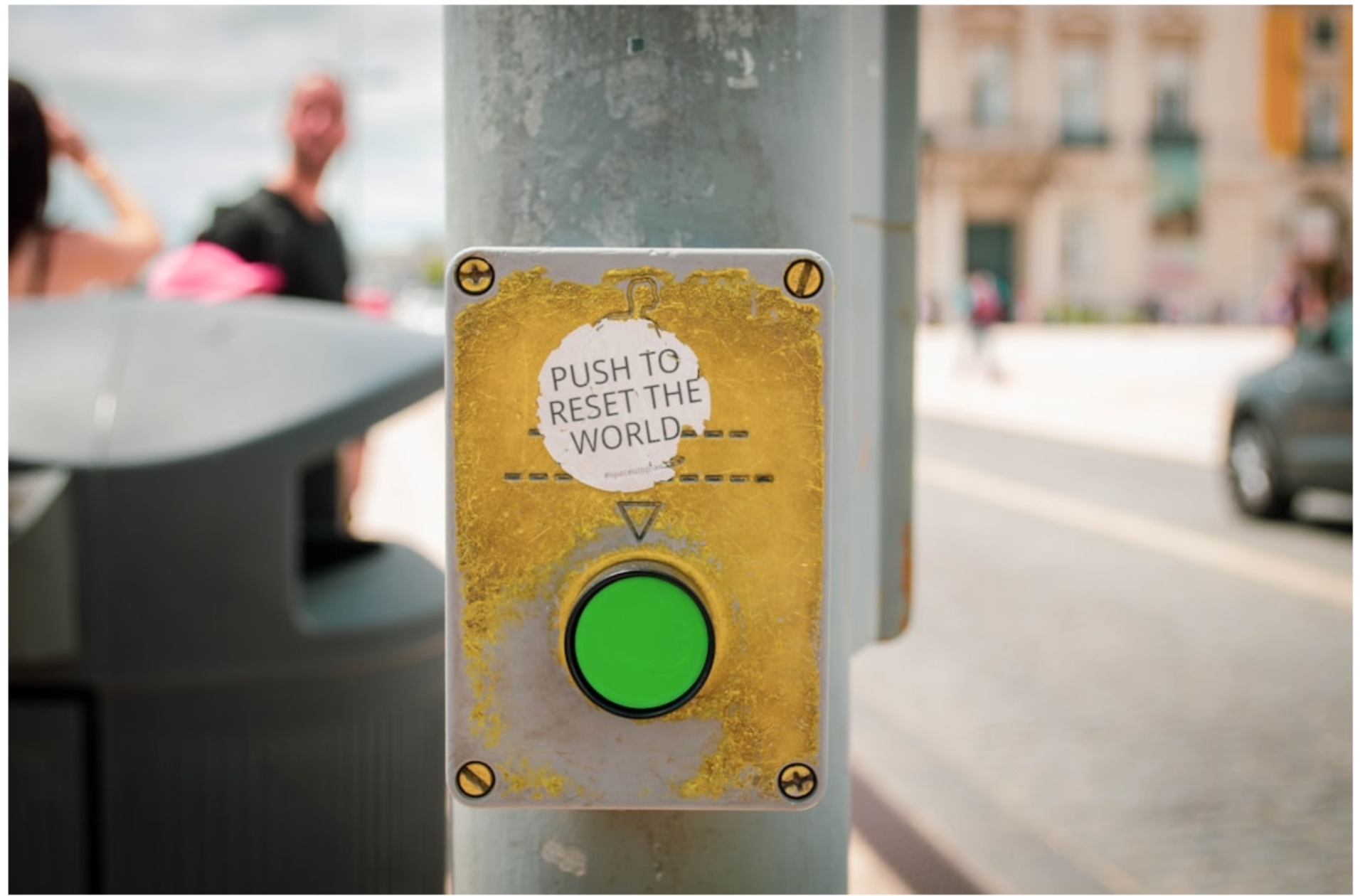Polychronic or Monochronic?
And What Does This Have
to Do with Freelancing?
Hey friends, don't worry, these aren't diseases! Understanding these concepts can help you understand yourself and your clients (especially from different countries) and organize work effectively and comfortably for both sides.
Polychronic and monochronic refer to how people perceive time, which varies by cultural background. Some cultures are predominantly polychronic or monochronic.
In monochronic cultures, time is linear. Being late, missing deadlines, or interrupting someone at work is unacceptable. In polychronic cultures, time is more flexible. People don't mind interruptions and aren't as strict about punctuality.
For example, Europe and North America are typically monochronic. Latin America, Arab countries, and parts of Africa are more polychronic.
When an individual's perception of time matches their culture, it's perfect! But in today's world, we travel a lot. If a monochronic person finds themselves in a polychronic country, they might feel overwhelmed by the chaos and lack of strict schedules. Imagine visiting Spain or Italy, where people don't rush, and plans often change because the bus driver decided to have coffee with a friend.
On the flip side, a polychronic person in a monochronic country might find life more pleasant, enjoying the structured environment without being in a constant hurry.
Let's dive deeper into the characteristics of polychronic and monochronic people.
Polychronic
- Time Perception:
- Time is continuous and unstructured.
- It flows like an endless river from past through present to future.
- Work Style:
- They don’t structure their work time.
- They switch between tasks as they please.
- They can meet deadlines but don’t follow a strict schedule.
- They dislike detailed plans.
- They work based on internal feelings rather than a strict schedule.
- Multitasking:
- They handle multiple tasks simultaneously.
- Switching between tasks stimulates them and increases efficiency.
- Punctuality:
- They are often late.
- Exact time and dates aren’t important to them.
- They don’t understand why punctuality is considered a virtue.
Polychronic Freelancer
- Work Schedule:
- They work at any time of day when they feel inspired.
- They mix work time with personal life.
- They might take breaks during the day for personal matters and return to work in the evening.
- Project Management:
- They handle multiple projects at once and switch between them.
- They might delay deadlines.
- They adapt easily to project changes.
Example: A polychronic designer works on three projects at once. They might start the day working on a logo, then switch to a website, and finish by working on a mobile app in the evening. They may take a walk or meet friends in between, then work late into the night.
Monochronic
- Time Perception:
- Time is divided into fixed segments.
- It’s discrete, measured in seconds, minutes, hours, days.
- Time can be organized, quantified, and planned.
- Work Style:
- They make detailed plans and to-do lists.
- They organize their time daily.
- They work on one task until it’s complete.
- Switching between tasks is inconvenient and inefficient for them.
- Punctuality:
- They highly value punctuality.
- Being late is seen as disrespectful.
- They get anxious if someone else is late.
Monochronic Remote Worker
- Work Schedule:
- They set a clear work schedule, like 9:00 AM to 6:00 PM.
- They separate work time from personal life.
- They minimize distractions during work hours.
- Project Management:
- They focus on one project at a time.
- They carefully plan work stages and stick to deadlines.
- They may feel stressed by unexpected changes in the project.
Example: A monochronic programmer starts work at 9:00 AM sharp. They list tasks for the day, work on one project, and take regular breaks. If a client requests an urgent task switch, they might feel uncomfortable and ask for time to finish the current task first.
In today's globalized world, collaboration between people from different cultures is common, especially in remote work. This often leads to clashes between monochronic and polychronic approaches to time and work.
Imagine a scenario where a Swiss client (monochronic) hires a Ukrainian freelancer (polychronic with some monochronic traits):
- Project Planning:
- The Swiss client creates a detailed project plan with clear deadlines.
- The Ukrainian freelancer might see this plan as flexible, thinking deadlines can be adjusted as needed.
- Communication:
- The Swiss client expects daily reports at a set time and quick responses to messages.
- The Ukrainian freelancer might provide reports irregularly when significant progress is made and respond to messages with delays if busy with other tasks.
- Work Schedule:
- The Swiss client assumes the freelancer’s workday matches their time zone.
- The Ukrainian freelancer might work at times convenient for them, which may not align with the client’s expectations.
- Project Changes:
- The Swiss client expects all changes to be discussed in advance and included in the plan.
- The Ukrainian freelancer might make changes during the project, believing it will improve the final result.
- Deadlines:
- For the Swiss client, a deadline is a fixed date that must be met.
- The Ukrainian freelancer might see the deadline as a guideline, flexible if unexpected circumstances arise.
This situation can lead to misunderstandings and conflicts. The Swiss client may view the Ukrainian freelancer as unreliable and unprofessional, while the freelancer may see the client as overly strict and inflexible.
For successful collaboration, both parties need to be aware of cultural differences and find compromises. They could agree on regular but not daily reports, set a flexible schedule with specific hours for meetings, and identify key deadlines that must be met while allowing flexibility in other project aspects.
These examples show how different approaches to time and work can impact freelancing and remote work, creating both advantages and challenges. Understanding this information can help you build an effective communication system within your team. We’ve written more about this in our previous posts.
More Articles

How SEO Is Changing in the Age of AI
21-10-2025
AI is transforming search. Learn how SEO evolves into AEO and GEO — where visibility means being cited in AI answers, not just ranked in results.

Keeping the Human Mind Sharp When AI Can Do It All
16-10-2025
AI makes work easier, but thinking harder. Learn how to stay creative, critical, and human in the age of intelligent machines.

AI Workslop: Why Businesses Pay Freelancers to Fix AI
07-10-2025
AI speeds up work but often creates “workslop” - results that look complete yet lack value. Freelancers are the ones turning them into quality.

Disney Creative Strategy: How Ideas Become Reality
03-10-2025
Disney Creative Strategy: dream, plan, critique — a tool to guide ideas from imagination to real-world results.

Upwork Boost: Increasing Freelancer Profile Visibility
29-09-2025
Discover how Upwork’s Available Now badge and Profile Boost work, their costs, pros and cons, and which boost is best for freelancers or agencies.

10 Posts to Help You Get Started on Upwork
29-09-2025
We’ve gathered a set of articles to guide you through the essentials — from setting up your profile to building long-term client relationships.

Etcetera summer 2025 report
26-09-2025
Etcetera summer 2025 results: quiet season, new team members, shifting Upwork rules, and plans for an active autumn.

Upwork Feedback: a trust tool you should learn to read and write
22-09-2025
Upwork feedback is more than stars — it builds trust, shapes reputation, and guides choices. Learn how to read, request, and write reviews effectively

7 Hats: a thinking tool that saves time and nerves
08-09-2025
Instead of mixing emotions, facts, and criticism in chaos — this method by Edward de Bono helps separate thinking modes.

Upwork: From Simple Fees to Pay-to-Play
29-08-2025
Discover how Upwork’s fees evolved from flat 10% to a pay-to-play model with Connects, boosts, and variable 0-15% commissions in 2025.

Upwork Reset 2025: How to Refresh Your Freelance Strategy
25-08-2025
Discover 5 practical steps to reset your Upwork strategy in 2025: update skills, rethink pricing, optimize proposals, and grow with the market.

How to Build a Team That Won’t Fall Apart in a Crisis
22-08-2025
How to build a strong team that survives crises: Denys Safonov shares lessons from 11 years of leading the agency Etcetera through global challenges.




















